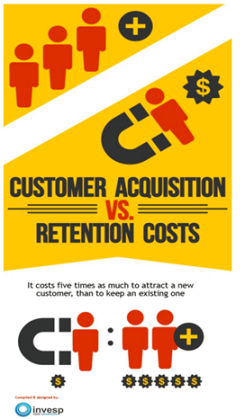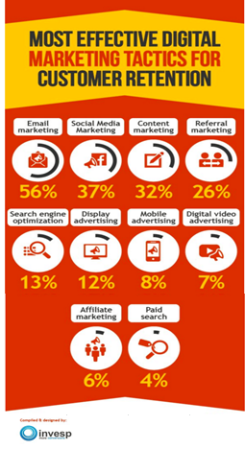Few people in the travel industry would contest that competition is intensifying; sources for information and insights are multiplying and travelers’ – especially millennials – expectations for trip experiences are higher than ever. Turning these people into customers is an  increasingly difficult challenge. Even getting them to your shopping cart isn’t enough – as high abandonment rates attest. Is it any wonder so many travel agencies are focused on sharpening their marketing campaigns to the public with Big Data and Analytics? Actually, perhaps the priority of marketing to that group is a big of a wonder – when you consider it often overlooks the importance of existing travel customers to current and future success.
increasingly difficult challenge. Even getting them to your shopping cart isn’t enough – as high abandonment rates attest. Is it any wonder so many travel agencies are focused on sharpening their marketing campaigns to the public with Big Data and Analytics? Actually, perhaps the priority of marketing to that group is a big of a wonder – when you consider it often overlooks the importance of existing travel customers to current and future success.
Existing Customers are your Good Fortune
Existing customers are literally and figuratively a travel agency’s good fortune – and there is solid business logic to back up the statement.
Great Value: while it stands to reason generating sales from current customers is less expensive than new ones, this is particularly the case in the travel industry. One reason is travelers have an attractive profile as existing customers; travel is an ongoing lifestyle choice – few people travel once and stop; plus, the typical transaction size justifies the cost of maintaining these customers.
Beyond this “bird in the hand” logic, the marketing challenge for new customers makes their acquisition increasingly costly – certainly more than the original acquisition cost of existing customers. In fact, its estimated new customers cost five times more than ones a travel agency or tour operator already has.
High Chance of Success: having met or exceeded customer expectations, a company is positioned to have a much better chance of winning more sales. According to Marketing Metrics, the probability of converting an existing customer is 60-70 percent (vs. 5 to 20 percent of new prospects).
Blocks Competitors: people who travel tend to continue do so. Their future trips can only come from one of two places – their current travel agency or a competitor. Each retained customer is one more way to block the growth of competition.
Growth: every travel business will find referrals to be their most effective marketing campaign. People who are beginning to travel talk to friends and family that already do – and/or read online reviews. According to Travel Weekly's Consumer Trends 2014 Survey, 39% of travelers who used a travel agency said the agent was selected on a friend’s recommendation. Even 10% who used an OTA relied on a friend’s guidance. Not only are existing customers less expensive, they can even reduce the acquisition cost of new ones!
How to Keep Customers
Since current customers are a real asset, it stands to reason the travel industry should be aggressive about retention and also broadening relationship sales to reflect new products and services. It will take near and long term strategies to reach those goals, and those plans should include these tactics.
Customer Service: has any part of the sales lifecycle received more attention than the importance of an excellent customer experience? Despite the attention, this area remains a potential stumbling block and often a missed opportunity. Travel agencies need to respect the operational challenges and also the difference between good service and delightfully excellent service.
Website Content: effective content will engage your customers, make them aware of what differentiates the agency’s product and service, become regarded as a valuable source of travel expertise – and keep them coming back.
Loyalty Programs: this is really what customer retention is all about – loyalty to the agency, its products and services. An effective loyalty program should make your customers say, “This agency appreciates its customers, knows what my business is worth, and is willing to reward me for it.” Younger, millennial, travelers are particularly receptive to loyalty programs – with 45% saying they will go out of their way to use a loyalty program.
Email & Technology Plays a Special Role
Customer service, site content and loyal programs are essential retention tactics, but email marketing campaigns for travelers play a role that provides unique capabilities in the following ways:
Personalized Marketing: marketing personalization is the practice of blending customer knowledge with triggers to systematically customize marketing campaigns and  communications for each customer. It enables a travel agency to create individualized tactics for every customer based on their preferences and buying patterns. They can be engaged at the right times with emails that come across as relevant and valuable. This personalized approach is very agile; it can fit email marketing for OTAs or tour operators.
communications for each customer. It enables a travel agency to create individualized tactics for every customer based on their preferences and buying patterns. They can be engaged at the right times with emails that come across as relevant and valuable. This personalized approach is very agile; it can fit email marketing for OTAs or tour operators.
Technology Benefits: personalized email campaigns are an effective means of leveraging travel technology to strengthen customer relationships and reinforce buying habits. The CRM module of a Travel ERP system is able to use analytics and identify customers with similar travel characteristics and histories. These customer groupings are labelled with personas attributable to those histories and characteristics (e.g. Action & Adventure; Beach & Nightlife) and marketed with long term, carefully scheduled email campaigns.
These email campaigns address the question: how do you know if an existing customer has been retained? For instance, if a traveler makes a purchase once a year, does the agency have to wait twelve months to know if they’ve been lost?
In fact, the Travel ERP/CRM system can use email campaigns to provide highly valuable clues from customer behavior between purchases. For example, did the customer open the email? If the answer is no, the reason could be a busy or distracting day. If CRM reports the last three emails have been unopened, the implications are more serious and the customer may need to be shifted to a more aggressive retention campaign.
Perhaps the customer opened the email but did not click on a link to personalized travel information or offers. Again, CRM is able to determine if this is part of a pattern or an isolated event. A pattern could mean the customer is loyal but personalization is flawed and his patterns need further analysis.
No other marketing tool equals email’s ability to deliver targeted, personalized and response-enabled feedback into the CRM system for marketing campaigns. It allows travel agencies to run sustained customer retention campaigns with high ROIs and revenue results.
















